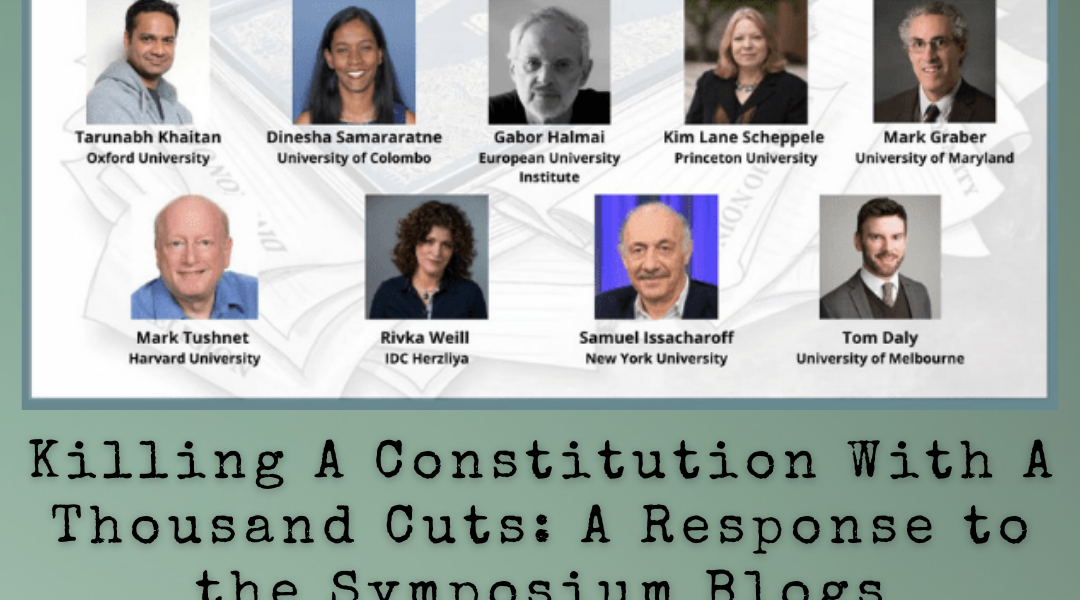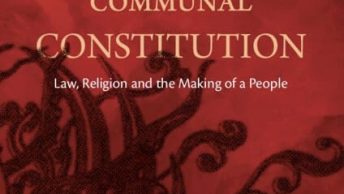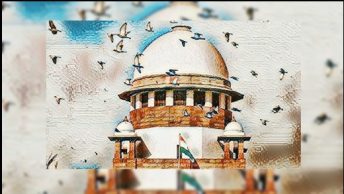[Ed Note – We are hosting an international blog symposium on India and Global Decline in Democracies as a part of our New Scholarship initiative. We discussed Professor Tarunabh Khaitan’s article, which he introduced here. All responses to his article can be found here. This post is the last post in the symposium, a response to the responses by Prof. Khaitan.]
Scholarship thrives on peer criticism. I am extremely grateful to Law and Other Things for hosting a symposium on “Killing a Constitution With a Thousand Cuts”, and to the thoughtful scholars who participated generously with their comments and criticisms of the paper.
On Methodology: Systems over Particulars
Academics gravitate towards studying the particular. Our vocation (at least aspirationally) seeks to guarantee us that extremely scarce human resource: deep time. In return, it demands that we uncover non-obvious, non-perceptible truths that are harder for that other knowledge institution—the media—to unearth, mainly because journalists tend to be relatively time-poor and lack the necessary disciplinary training. While journalists must switch their attention from moment to moment, and from story to story, academics have the luxury to focus on an individual item, examine it from multiple perspectives, read everything written about it before, research the matter using the methods accepted in their discipline, workshop draft papers with peers and subject them to criticism, revise umpteen drafts, before finally committing their discoveries to the printed word. Despite access to deep time, however, we are still being forced to become super-specialists. Scholarship reveals truth that is usually complex, rather than simple. In order to manage the complexity, and the ever-growing burden of digesting extant literature, scholars are forced to choose smaller and smaller items to study. There is, therefore, an institutional incentive in the academy to focus on the particular at the cost of the systemic.
Unfortunately for us, not all systems are a sum of their parts. This insight formed the foundation of “Thousand Cuts”, as Tom Daly’s comment acknowledges. With characteristic generosity, he commends the paper for giving form to the ‘formless, nameless, shapeless’ deconsolidation of democracy in India:
“Killing a Constitution with a Thousand Cuts’ … piece[s] together seemingly isolated issues as part of a highly concerning pattern.”
As someone who commented on multiple drafts of this paper before it reached the publication stage, it owes a lot to Tom’s skilled midwifery. Kim Lane Scheppele’s comment insightfully builds upon Tom’s remarks to suggest that “one of the important virtues of Khaitan’s analysis is precisely its big-picture view of the forest while still presenting documentation of the individual trees.” I am grateful, of course, for the praise, but attempting to give a bird’s eye as well as an ant’s eye view of the phenomenon was precisely what made writing this paper extremely labour-intensive. Challenging though it is, I fully endorse Kim’s exhortation to our discipline:
“decades of comparative constitutional legal scholarship have given pride of place to the person who goes narrow and deep specializing only in comparative free speech law or in the technical differences in the jurisdiction of high courts or the comparative limits on the amendment power and so on. That is all valuable work, of course, but when constitutional governments around the world are endangered, we have to learn to think like those who are endangering them in order to fend off the threats. We can’t afford such specialization when the opponents of constitutional government are generalists who think systemically…The new autocrats have outsmarted the experts because their expertise runs perpendicular to that of the scholars and policy analysts. Most experts specialize in one topic or another; autocrats see systems.”
On Discipline: Constitutional Studies, not Constitutional Law
To Kim’s call for studying ‘systems’, Sam Issacharoff adds a disciplinary admonition to legal scholars—with his self-aware humility to include himself among those rebuked—of constitutions:
“Perhaps too much of the comparative legal work on the current populist challenge is written by constitutional lawyers (I include myself in the culpable group) for whom, not surprisingly, constitutional law is the entry point for analysis and apex constitutional courts are an outsized actor… As significant as [issues such as “unconstitutional constitutional amendments”] may be, they are not the driving force in many of the world’s backsliding regimes. What is striking is that the threat to democracy comes not from constitutional politics primarily, but from the quotidian mix of statutory, regulatory, and decretal authority, usually exercised in recognizable forms without constitutional change. The fact of ordinariness is what makes the present situation so fraught, for it is the mix of powers being deployed rather than a redefinition that is the driving concern.”
Not all democracies are lost to quotidian micro-assaults. Dinesha Samararatne’s report from Sri Lanka, and Gábor Halmai’s from Hungary, on the other hand, identify a more old-fashioned route to authoritarianism, through formal constitutional amendments. Scholars need to figure out what conditions permit a full-frontal assault, and which ones demand an incremental one. Are these down to arbitrary choices of the elected autocrat alone? Does a stronger lingering commitment to legality explains the Sri Lankan and Hungarian choice of the more formal—and therefore more readily identifiable—route to de-democratisation? And which type of assault is easier for democracy defenders to call out and respond to?
A choice between a naked wolf and a wolf in sheep’s clothing is not much of a choice. But when the threat is posed by the latter, the unmasking role of the scholar-as-truth-teller becomes particularly salient. Sam’s provocative title ‘Subversion by Law’ is reminiscent of Ran Hirschl’s earlier call for the discipline to move away from a sole focus on constitutional law. Now, more than ever, we must attend to that call.
Designing Our Way to Democracy?
Some respondents focussed on the possibilities and limits of institutional design in securing democracy. Sam poses the challenge thus:
“Scholars devote much attention to the benefits or demerits of presidentialism or parliamentarism, various forms of proportional representation, and levels of judicial review, the debates that may appear as an academic inquiry into variety among Tolstoy’s happy families. The unhappy democracies, from Poland to Hungary to India and (allow me my parochialism) the United States, each face unwinding in distinct ways.”
Rivka Weill adds further complication for design enthusiasts: even when judges are more than willing to step up to defend democracy (as, she says, they have been recently in Israel), it is unclear whether the results of well-meaning judicial intervention are always good for democracy. Mark Tushnet is perhaps the most thoroughgoing design-sceptics of all respondents in the symposium, calling for a direct ends-based analysis that eschews means-focussed niceties: “as a general matter, there’s no reason to think that the number of veto gates present at any particular time is optimal in terms of good governance.”
I agree (with Rivka) that the judiciary can, at best, be a part of a range of institutional guarantors of democracy, and with Mark T., that there is a trade-off between the number of veto players and effective governance. But I believe the mistake our discipline has often made is not that it has taken design too seriously; rather, our mistake has been to assume that the point of constitutional design is to mainly install judicial veto-players that will check political power. I have argued elsewhere that there is a lot more to good constitutional design, including enabling (rather than merely checking) political power, nudging (rather than mandating) political actors to behave well, and considering the whole range of constitutional actors whose behaviour can shape constitutional governance, not just the judiciary.
This is absolutely not meant to suggest that design is a panacea. In my view, institutional design acts like a catalyst in a polity: it can hasten certain reactions and impede others. Catalysts cannot prevent the inevitable, nor can they force what is simply not going to happen. But that doesn’t make them useless.
Why Democratic Deconsolidation? Proximate and Deeper Causes
Mark Graber makes a somewhat different critique:
“The remedies the literature on right-wing populism offer are as other directed as the analysis of the right-wing populist surge. Tom Ginsburg, Aziz Huq, and others focus on how constitutional democracies might place more institutional barriers against right-wing populists. Few works explore how more voters might be induced to support progressive and other forms of constitutional democracy. Barriers are nice, but any democracy in which a high percentage of the people support Donald Trump or Narendra Modi is likely to be in crisis until those people can be convinced that a functional democracy better serves their interests than gaining ethnocultural satisfaction…This literature too often fail to acknowledge that providing better barriers that will fence out the populist horde from power is insufficient.”
This point is taken, with two caveats. First, bad design sometimes means that autocratic leaders access power even when they do not have the support of a majority. Trump became president after famously losing the popular vote by the millions. Modi’s first premiership was built on a popular base in barely above 31% of the voting electorate (the lowest ever vote-share secured by a majority party in India). Sometimes, design is at least part of the problem — at least a proximate cause of democratic deconsolidation.
Second, political cause and effect are clearly important objects of scholarly inquiry. Mark G. is therefore right in asking for a study of the causes of the popularity of demagogues. But by whom? I fully support his call, but only by scholars who have the appropriate training in social sciences disciplines, and therefore possess the intellectual tools to study the matter adequately. Constitutional scholars—at least those like me who are mainly trained in law—are disciplinarily limited in what they are properly able to understand and explain. In this article, for example, seeking to establish a necessary normative opposition between liberal constitutionalism and neoliberal policies, I only explore normative arguments (that I feel able to tackle because of my training in political philosophy) and institutional mechanisms that liberal constitutions could deploy to defeat neoliberalism (which my legal training equips me to say something about). Anything beyond our skill-set is best left to experts.
That said, constitutional experts could contribute something to Mark G.’s important question: what institutional considerations influence voter behaviour, especially those that make authoritarianism attractive to them? While constitutional scholars are disciplinarily under-equipped to figure out the deeper socio-economic and political causes of democratic decline, they surely should pay attention to works of scholars from other disciplines and bring their own expertise in conversation with these works. For example, as Mark G. highlights in his comment, Deborah Hellman’s work on broadening the institutional definition of ‘corruption’ to attend to the socio-political impact that governance failures has on the legitimacy of democratic institutions is squarely within the disciplinary remit of constitutional expertise. Mark G. is right in saying that our discipline has, largely, focussed on proximate institutional factors that underpin democracy. Constitutional scholars need to attend to the insights of scholars from other disciplines as they uncover less directly observable, but important, socio-political and economic factors that contribute to a healthy democracy, and explore what, if anything, institutional design can do to influence these deeper factors.
On the Politics of Scholarship
Mark Tushnet’s demand for of straightforward political critique appears to be based on the critical (as in ‘critical legal studies’) premise that institutional arguments are often mere smokescreens, which strategic scholars deploy to mask what is in fact their disapproval of the policy goals that are being pursued. While suggesting that this intellectual sleight of hand is what I might *really* be up to in ‘Thousand Cuts’, he is too cautious a comparativist to pass unqualified judgment. Instead, he concedes that while the context may sometimes justify such scholarly dissembling, in general, “it might be a mistake to infuse scholarly arguments with strategic political judgments even implicitly.”
With this final conclusion, I could not agree more, and have frequently and publicly emphasised the need for scholars to restrain the activist within them. On the dissembling charge, therefore, I emphatically plead ‘Not Guilty!’ Professionally, I see my duty of my ‘office’ of a scholar—perhaps naively— as entailing a commitment to truth-telling above all else. On the other hand, my moral worldview, and—I suspect Mark’s—is that of a fox rather than a hedgehog’s. I can imagine contexts where one’s vocational commitment to truth-telling must give way to a greater moral cause as a human being. The rule-consequentialist in me also appreciates that these exceptions are to be invoked exceedingly sparingly.
In my defence for the charge of intellectual dissembling, I cite my unqualified public criticism of constitutional adventurism of the left-leaning previous government seeking—through this adventurism—progressive political goals that I very much endorsed. I wrote in 2010 that the then government was “setting a dangerous precedent that will come back to haunt us”. On the other hand, I believe that while the BJP government under PM Vajpayee did many bad things—including an abortive attempt to amend the constitution in undesirable ways—it did not seek to undermine constitutional governance in the wholesale and systemic manner that the current Modi government has sought to do.
Separating goals-oriented policy critique from a means-focussed institutional one is intellectually possible, even necessary. One can coherently say that a government’s actions are substantively wrong but institutionally permissible in one case, institutionally illegitimate (even if substantively desirable) in another, and wrong and illegitimate in another still. Mark T., through his CLS lens, may well see this insistent separation of the goals and the means—and consequently, of the constitutional scholar and the political activist—as either a naïve symptom of false consciousness, or a clever triple bluff. This is where I must leave readers to make up their own minds.






3v1ugz
q5bpvk
g4x6h6
j2tpcb